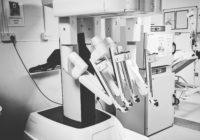Rare Disease Day Quiz 2021

The last day of February marks Rare Disease Day, an initiative that helps increase education, discussion, and improve access to treatment options. Orphanet Journal of Rare Diseases has rounded up a few interesting facts and research about rare diseases. Find out how much you know, and share your results with us @OJrarediseases and use the hash tag #RareDiseaseDay.






